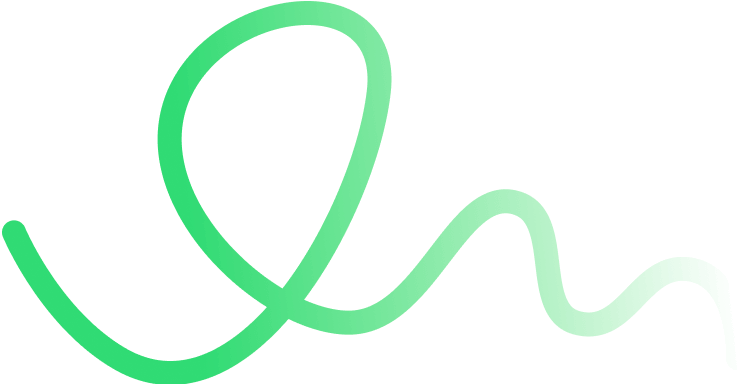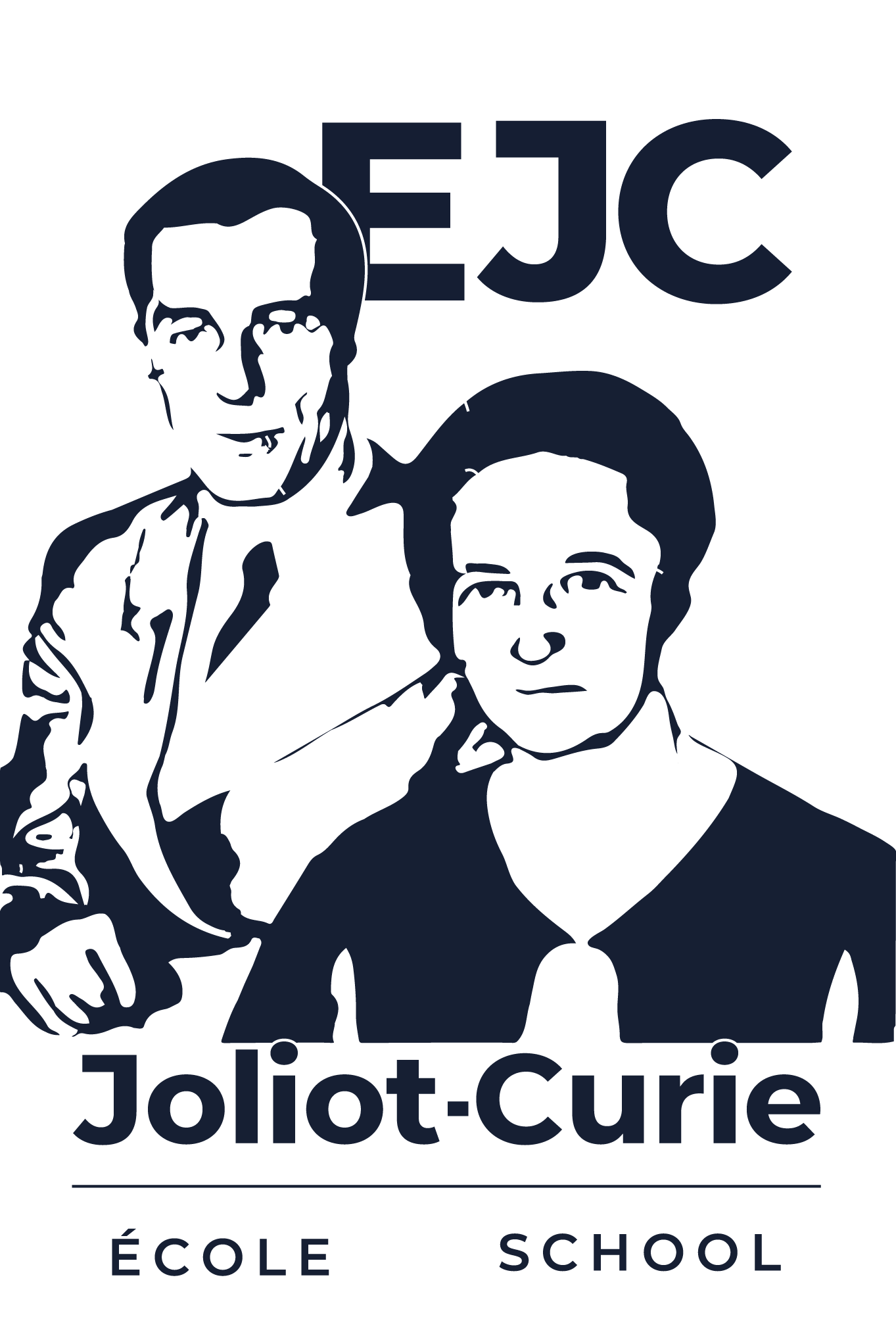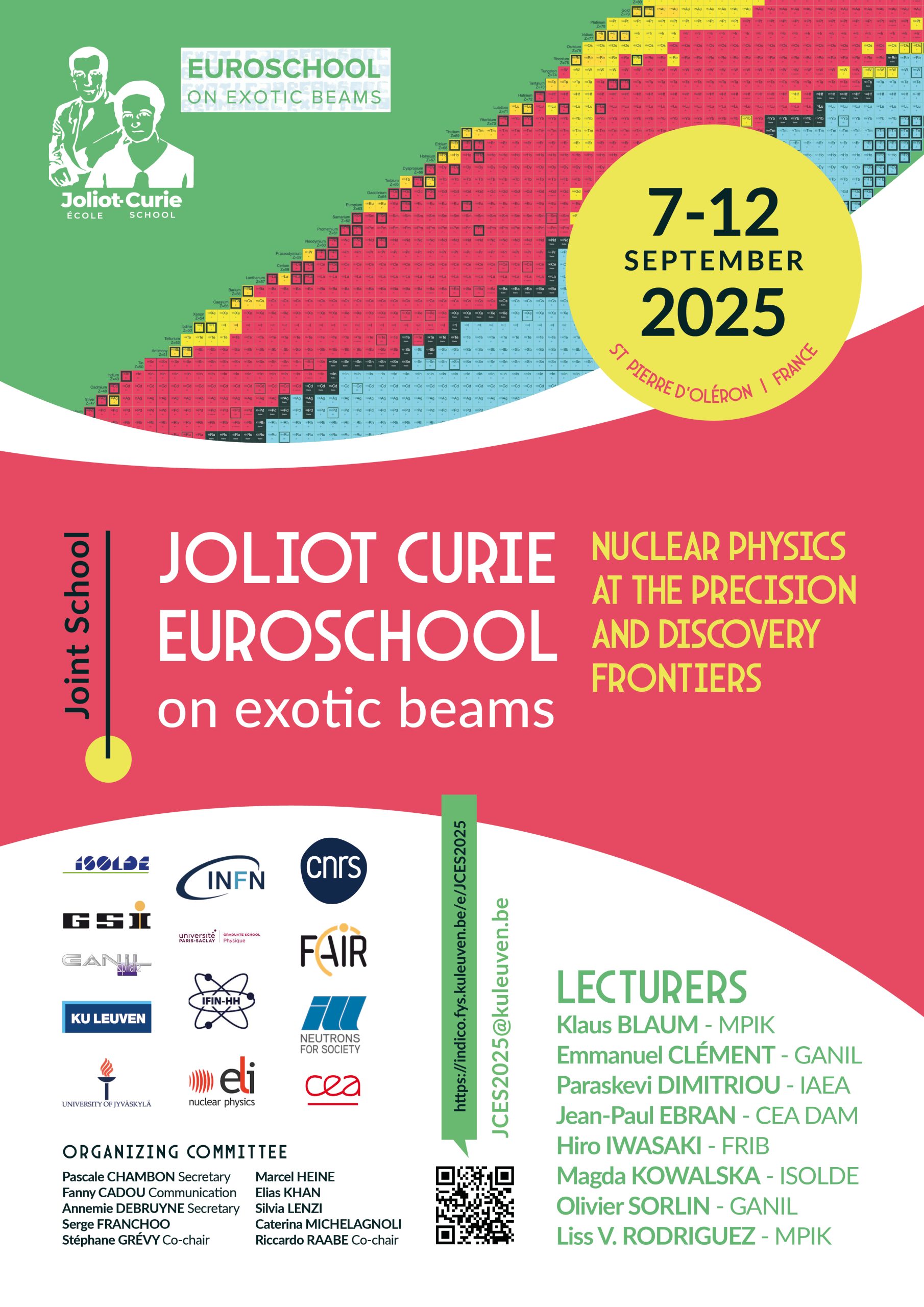
The Joliot Curie School trains each year, and since 1982, PhD students, post-doctorates and researchers on scientific breakthroughs performed in a topic related to nuclear physics, in a broad range.
Elevated to the rank of European School of Physics in 2009, the Joliot Curie School has excelled over the years in promoting and teaching the most recent advances in fields as varied as nuclear physics, nuclear astrophysics and associated applications to students and researchers alike.
First being a high-standard French speaking school, it became international since 2009. The school is mainly funded by CNRS Formation, CNRS Nuclei&Particles (IN2P3) and CEA.
HISTORY
* Excerpt from the preface to the first edition, 1982:
We can’t introduce the courses in this first edition of the Joliot-Curie School of Nuclear Physics without briefly presenting the school itself. In choosing to associate it with the names of Frédéric Joliot and Irène Joliot-Curie, its organizing committee wished to pay a tribute that the scientific and human stature of the latter alone justified. But it was mainly because of their fundamental role in the development of French research in Nuclear Physics that we wanted to place ourselves under such a prestigious patronage. Indeed, the ambition of this school is to contribute, in its own right, to ensuring that our discipline retains the vigour and quality it has demonstrated in France since the days of Frédéric Joliot and Irène Joliot-Curie. The celebration of the fiftieth anniversary of the discovery of artificial radioactivity will be an opportunity for us to measure the progress made, but even more so to celebrate the fact that the problems opened up at that time remain as numerous, varied and motivating as ever.
The school’s pedagogical approach is to present the results and prospects of a topical issue in a format that is accessible to all researchers, including students graduating from a specialized DEA. The vitality and dynamism of a discipline like ours is measured by our ability to attract young researchers. We are delighted to note that around 30% of the participants in this school are about to embark on, or have recently embarked on, a post-graduate thesis. The balance between these young physicists and more established researchers, whether or not working in the strict field covered by the school, is also a necessary condition for success.
This school has come into being and will continue to fulfil its role thanks to the moral and financial support of IN2P3, and the backing of its Director, Jean Yoccoz.
Long live the Joliot-Curie School of Nuclear Physics!
P. QUENTIN
The successive chairs have been:
1982‐1989 Philippe Quentin (CENBG, Bordeaux)
1990‐1998 Yvon Abgrall (CENBG, Bordeaux)
1999‐2003 Christian Le Brun (LPC, Caen)
2004‐2008 Marie-Geneviève Porquet (CSNSM, Orsay)
2009‐2010 Faïçal Azaïez (IPN, Orsay)
2011‐2013 Navin Alahari (GANIL, Caen)
2013‐2016 Elias Khan (IPN, Orsay)
2017‐2022 Miguel Marqués (LPC, Caen)
since 2023 Stéphane Grévy (LP2i, Bordeaux – former CENBG)
EJC 2025
7 – 12 september
Saint Pierre d’Oléron
Joliot Curie Euroschool on Exotic Beams
Nuclear Physics at the Precision and Discovery Frontiers
In 2025, the Joliot Curie school and Euroschool are jointly organizing a school dedicated to the study of exotic nuclei. This theme, which emerged in the 1980s, particularly in France with the development of GANIL (Grand Accélérateur National d’Ions Lourds in Caen), is expanding worldwide. From an experimental point of view, the development of new accelerators is making it possible to produce more exotic nuclei (SPIRAL2 in France, FAIR in Germany, RIBF in Japan, FRIB in the US). The structural properties of these nuclei can be studied in great detail, thanks to extensive R&D in radioactive ion handling and detectors. Last but not least, their theoretical description is also undergoing major advances, with important work being carried out both on effective interactions and on the development of so-called “ab-initio” interactions, as well as on the methods, with major developments both in the shell model and the energy density functional approaches. Beyond the interest of their structure, exotic nuclei are important for understanding the evolution of the universe through for example nucleosynthesis processes, but they can also be used to constrain the Standard Model of particle physics. In 2025, the school will discuss the status of our knowledge of exotic nuclei, focusing on advances made at the discovery frontier and those obtained by precision experiments, and how these advances improve our theoretical descriptions. The school will also offer two courses on the social aspects of these researches through medical applications and nuclear data.
More information and registration
This year’s lectures are :
- Physics at the precision frontier | K. Blaum
- Precision lifetime measurements | E. Clement
- Hands-on session on Nuclear Data | P. V. Dimitriou
- Nuclear theories at the driplines | J. P. Ebran
- Nuclear structure using exotic beams at different facilities | H. Iwasaki
- Medical applications | M. Kowalska
- Physics at the discovery frontier | O. Sorlin
- Precision laser spectroscopy | L. V. Rodriguez

